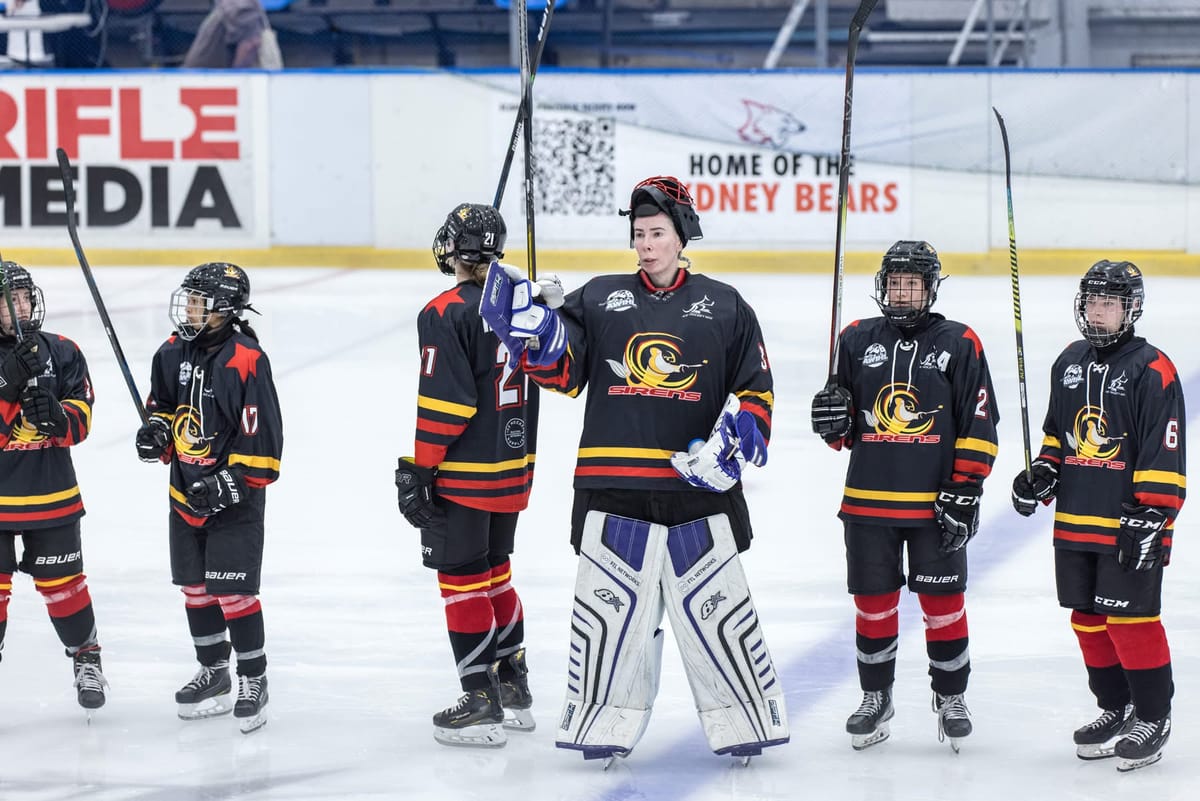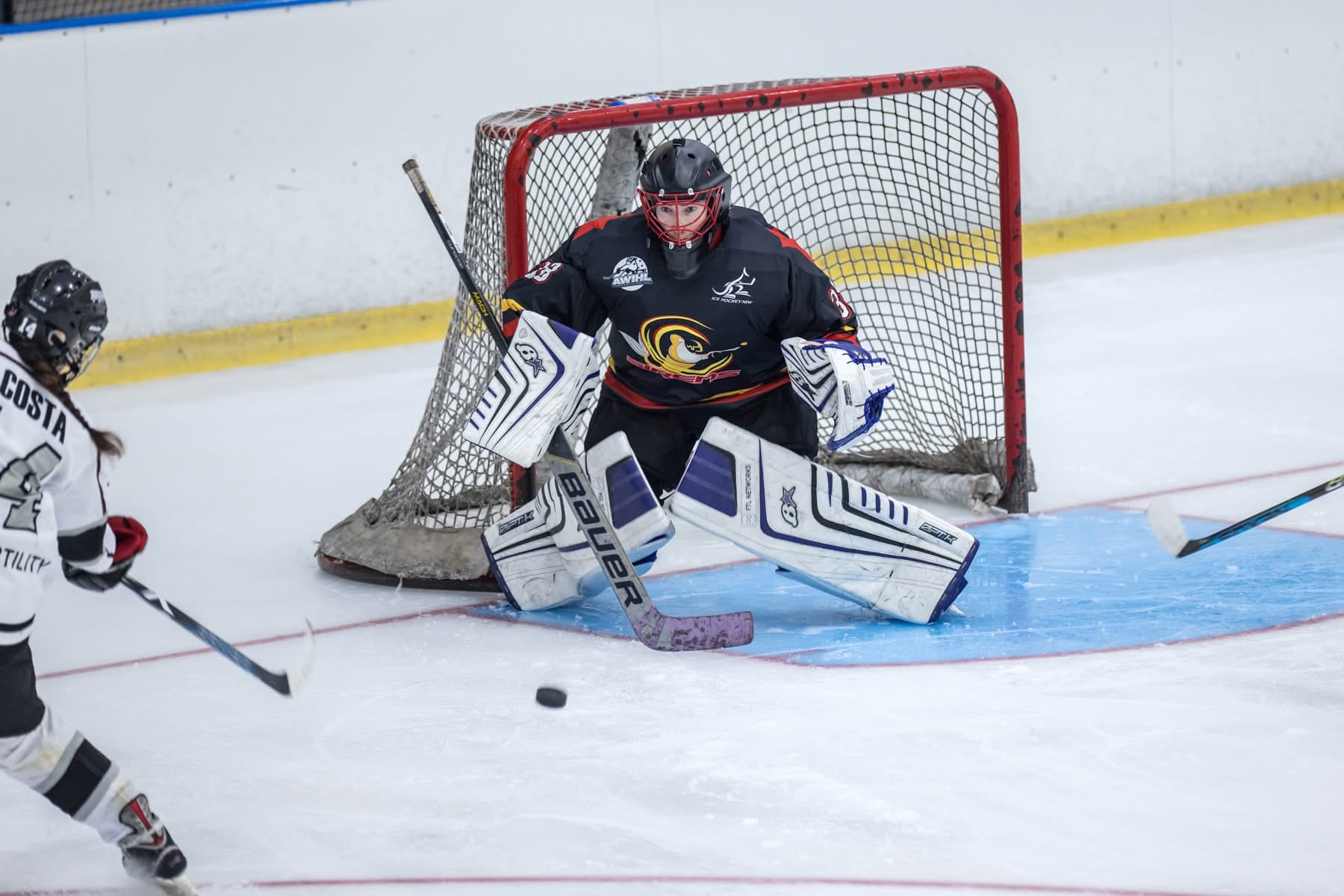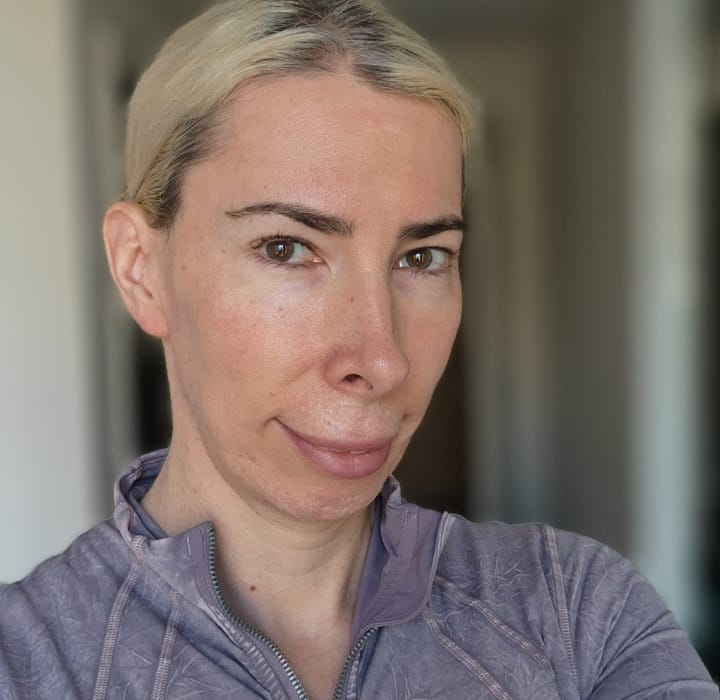A Conversation with Ella Licari, Part Two
Ella Licari, the first transgender woman to play in the Australian Women's Ice Hockey League, spoke with The Ice Garden for a wide-ranging conversation that spans music, her individual experiences with transition, and redefining her place in the game she loves.

Missed Part One? Get caught up here!
Branching outside of hockey, who are some of your role models?
This is a tough question to answer, but I’d have to say I admire Stephen Fry. It’s not just his theatrical works that impress me; it’s his use of his platform to address important issues. His openness in discussing difficult topics—like mental health, sexuality, and humanitarianism. He’s someone who champions meaningful conversations and makes a real impact.
On the Pride & Puck podcast you mentioned that after you started transitioning it was really daunting to figure out how to even start a return to pro hockey. So, how did you start making your way to the Sirens?
It had been a while since I’d played, and I was itching to get back on the ice. Naturally, playing recreationally wasn’t going to cut it for me. I’d heard about the AWIHL but didn’t know much about it at the time. So, I reached out to the league, explained my situation, and told them what I wanted to achieve. I don’t think they had any reference of my playing history, so they simply directed me to the Sydney Sirens’ tryouts—which, as luck would have it, were only a few weeks away.

When I made the team, I had no idea there were high-level discussions happening behind the scenes about whether I should be allowed to play, which makes sense because I was the first person in this kind of situation that asked the question. It wasn’t until years later that I found out about those meetings. Thankfully, I encountered very little opposition and was fortunate to be welcomed into the league without major issues.
How much time had passed between when you'd last played pro and when you started with the Sirens?
I last represented Australia in 2009 and was part of the Perth Thunder in 2011 when the team made its debut in the Australian Ice Hockey League during the inaugural exhibition round.
Did you notice any differences in your game after you started transitioning?
Transitioning is different for everyone, and my experience was no exception. With hormone replacement and testosterone suppression, the physical changes were quite dramatic, very quickly. I lost a significant amount of muscle mass, which is one of the more well-known effects. Along with that, maintaining/building muscle, and cardiovascular endurance became much more challenging.
What surprised me the most, however, was the changes in my mental competitive intensity. Getting hyped and focused before a game used to be quite easy, but for a while, I worried I wouldn’t be competitive at all. I had to adapt how I prepared for the game. It’s still not the same level of intensity I remember, but it gets the job done.

My ability to produce testosterone naturally is very limited, with my levels barely measurable. If anything, this puts me at a mild disadvantage when it comes to testosterone. The medical advice I received was to supplement this with a transdermal cream. However, under WADA regulations, no form of testosterone supplementation is permitted—even with a Therapeutic Use Exemption.
Staying in shape is something I have to work really hard at, especially as I approach 50. A couple of years ago, I took it easy during the off-season. Big mistake! Pre-season training for the next AWIHL season was incredibly tough on me.
There’s often a perception that a trans woman will always have a physical advantage over their cisgender peers, but I can’t comment on that across all sports, as I don’t have the data. As an ice hockey goalie, however, I’m not the tallest, the strongest, the fittest, or the quickest. I don’t carry any gender or sex-based advantage this far down the line after transitioning.
So, what makes me an effective goalie? It’s a good question. I think 37 years of experience helps. Being a goalie is part intuition, reading the player and the developing play, and a lot of being in the right place at the right time.
What are you proudest of, both on the ice and off?
I always find it tricky to answer questions like this. Off the ice, I’m really proud of where I am in life. It’s been an unexpected journey, to say the least. I’ve spent much of my life in public service, and I’m proud of the contributions I’ve made in that area. On the ice, though, I’m much more modest. For me, the real measure of satisfaction is walking away from a game or a season knowing I gave it my all—that’s something I can be proud of.
I’ve also received messages from people in the LGBTQI+ community thanking me for what I’m doing and for showing that it can be done. If what I’m doing means something to them, then that’s definitely something I can be proud of!





Comments ()